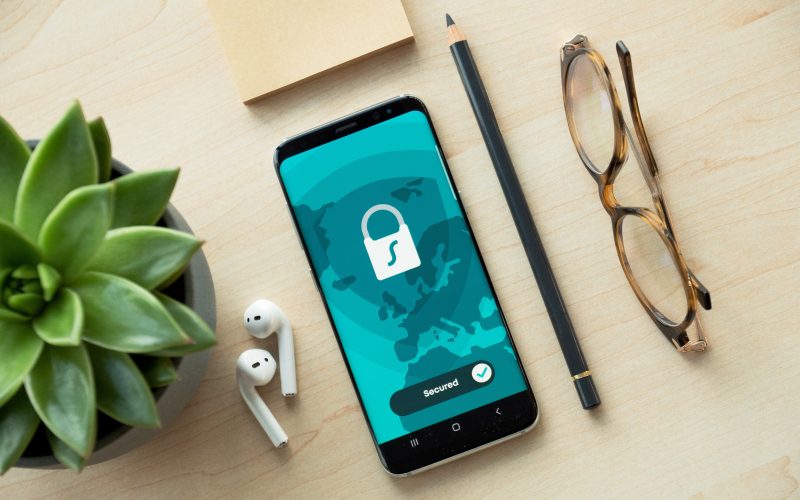As the world continues to adjust to remote work, businesses are faced with a new set of cybersecurity challenges. With employees accessing company data from multiple locations and devices, it has become more important than ever for organizations to develop effective cybersecurity strategies. In this blog post, we’ll explore the top cybersecurity strategies that businesses can implement in order to protect their sensitive information and ensure their remote workforce operates securely. From training employees on safe practices to implementing comprehensive security protocols, these tips will help keep your business protected against cyber threats in today’s digital age.
The rise of remote work and the threat of cyberattacks
In recent years, there has been a dramatic rise in the number of people working remotely. This trend is only expected to continue, as more and more businesses offer remote work options and employees increasingly value the flexibility and freedom that comes with telecommuting.
However, this increased reliance on remote work also comes with new risks, as businesses are now more vulnerable to cyberattacks. Hackers can target individual employees who are working outside of the office, and these attacks can be difficult to detect and prevent.
There are a few key strategies that businesses can use to protect themselves from cyberattacks in the age of remote work:
1) Educate your employees about cybersecurity risks: Many cyberattacks begin with phishing emails or other social engineering techniques that trick employees into divulging sensitive information or downloading malicious software. Employees need to be aware of these risks and know how to spot suspicious emails or messages.
2) Use strong security protocols: Businesses should implement strong security protocols for all remote workers, including two-factor authentication and VPNs. These measures will make it harder for hackers to gain access to employee accounts or company data.
3) Regularly back up your data: In the event of a successful cyberattack, having regular backups of your data can help minimize the damage done. Backups should be stored off-site so that they are not accessible to hackers who may have gained access to your network.
4) Monitor activity for unusual behavior: It
The top five cybersecurity strategies for businesses
In the age of remote work, businesses need to be extra vigilant about cybersecurity. Here are the top five strategies for keeping your business safe from cyber criminals:
1. Educate your employees about cybersecurity risks.
Make sure your employees are aware of the dangers of cybercrime and how to protect themselves. Teach them not to click on links from unknown sources, to use strong passwords, and to encrypt sensitive data.
2. Implement two-factor authentication.
Two-factor authentication (2FA) adds an extra layer of security by requiring users to provide two forms of identification when logging into accounts. This can be something like a password and a PIN or fingerprint verification.
3. Use a VPN.
A VPN creates a secure connection between your devices and the internet, making it more difficult for hackers to intercept your data. When choosing a VPN, make sure it uses military grade encryption and offers DNS leak protection.
4. Keep your software up to date.
One of the easiest ways for hackers to gain access to your system is through outdated software with known vulnerabilities. Make sure you keep all your software – including operating systems, browsers, and apps – up to date with the latest security patches.
5. Back up your data regularly.
In the event that your system is compromised, you’ll want to have backups of all your important data so you can restore it quickly and easily. Store backups in both physical
The importance of employee training
In today’s business world, cybersecurity is more important than ever. With the rise of remote work, businesses need to be extra vigilant in protecting their data and assets. Training your employees in cybersecurity best practices is a critical part of keeping your business safe.
When it comes to cybersecurity, employee training is one of the most important things you can do. By educating your employees on how to spot potential threats and what to do if they encounter one, you can help keep your business safe from attack.
There are a number of ways you can train your employees in cybersecurity. One option is to offer regular training sessions or webinars on topics such as phishing scams and password security. You can also make use of educational materials such as guides and tip sheets. Whatever approach you take, make sure that your employees understand the importance of cybersecurit
Implementing cybersecurity measures in the workplace
As the COVID-19 pandemic continues, more and more businesses are moving to a remote work model. While this offers many advantages, it also creates new cybersecurity challenges. Here are some top strategies for keeping your business safe in the age of remote work:
1. Encourage employees to use strong passwords and two-factor authentication.
2. Keep your systems and software up to date with the latest security patches.
3. Educate employees on how to spot phishing emails and other scams.
4. Use secure VPN connections for all remote access to company data.
5. Regularly back up your data in case of a ransomware attack or other data loss incident.
By following these tips, you can help keep your business safe from cyber threats in the age of remote work.
Conclusion
With the rate at which businesses are moving to remote work, cybersecurity has become increasingly important. We hope this article has helped you understand the importance of securing your business with an effective cyber security strategy and equipped you with tips on how to get started. Don’t wait until it’s too late – start taking steps today to protect your business from potential threats and ensure that everyone in your organization is adequately trained in safe online practices.












